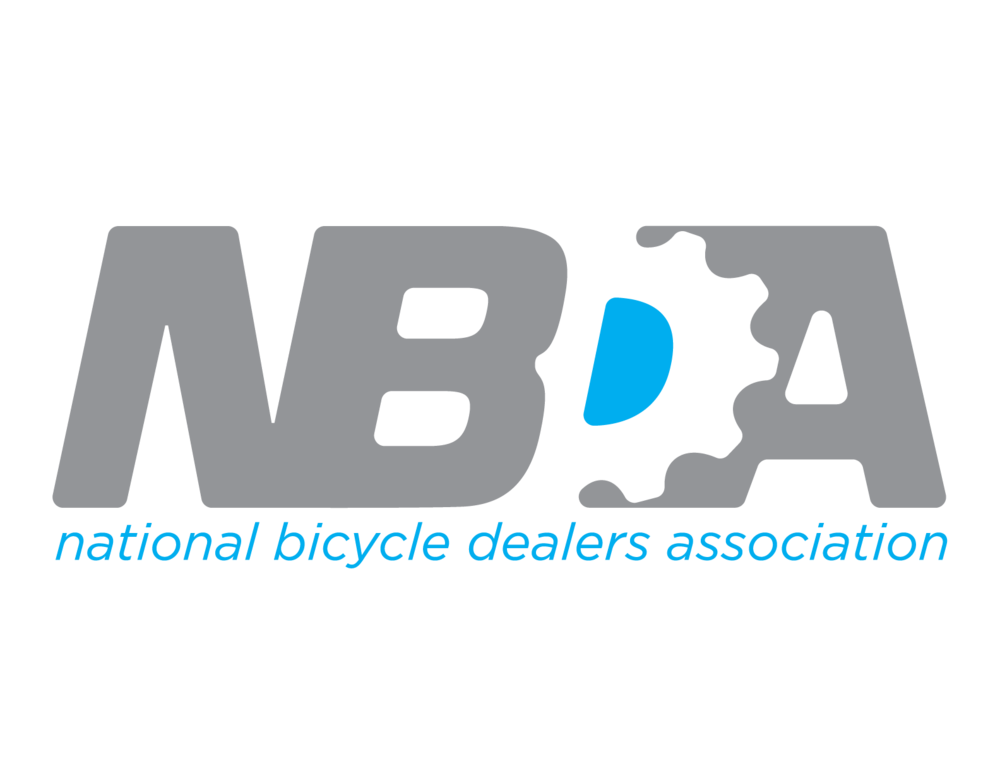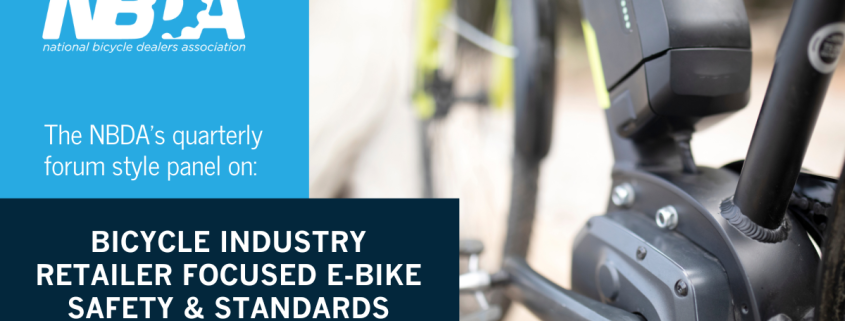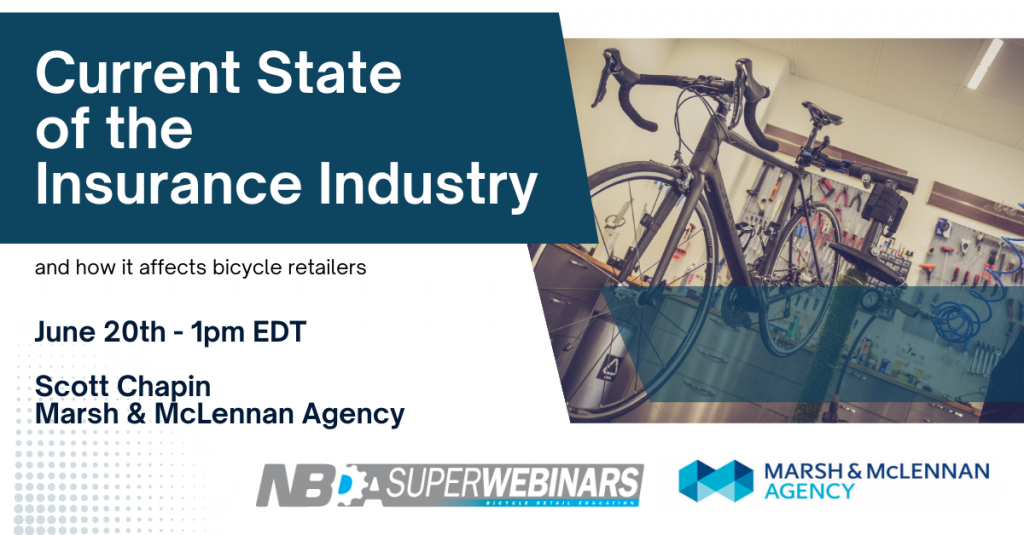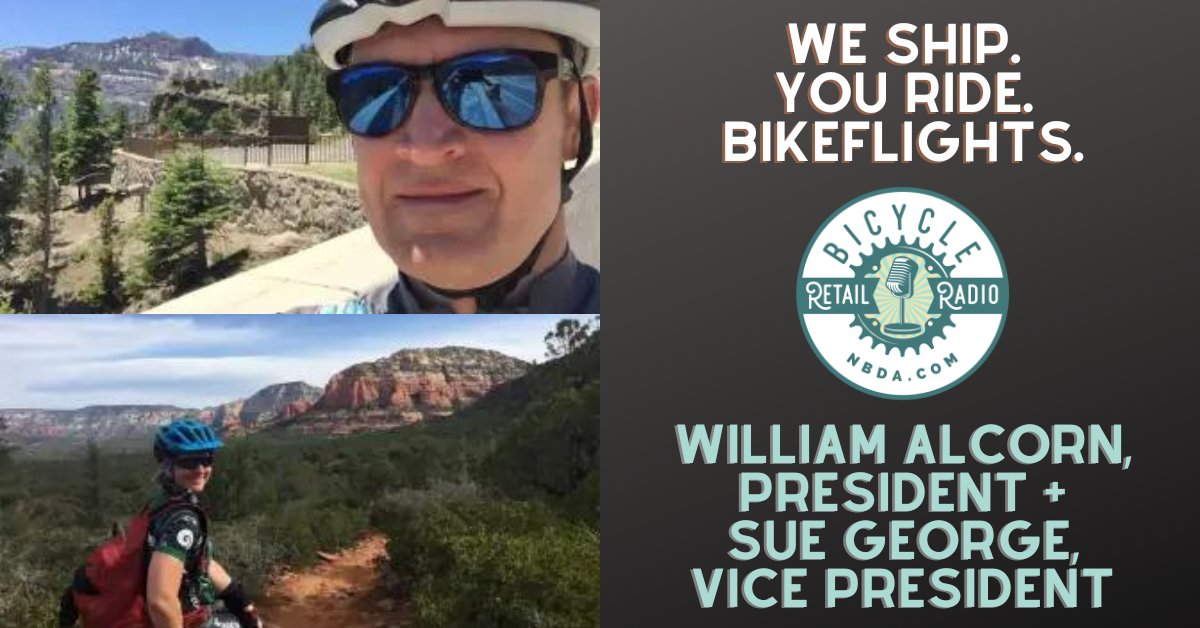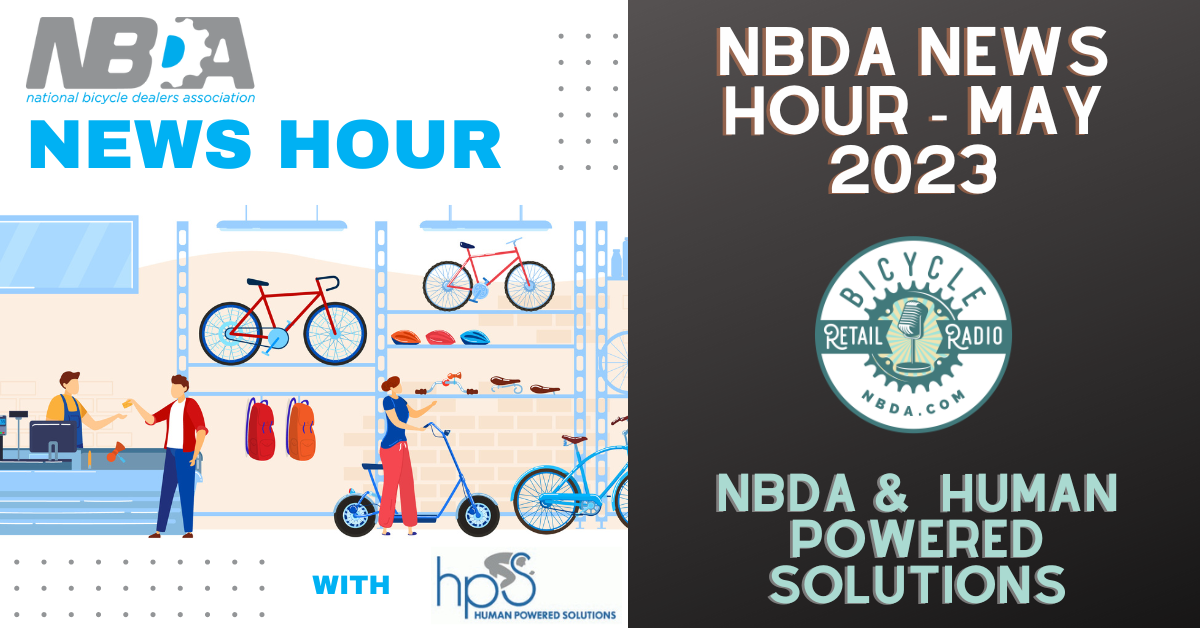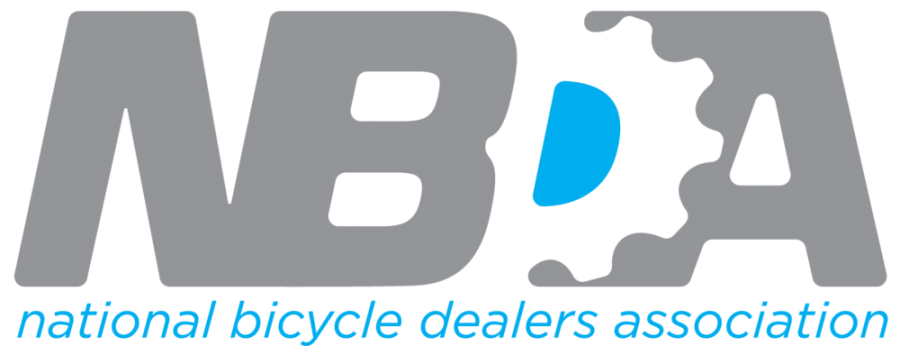NBDA E-Bike Safety & Standards Panel Features Expert Insights on Battery Recycling, Retailer Engagement, and Rider Safety
The National Bicycle Dealers Association (NBDA) Bicycle Industry E Bike Safety & Standards Panel convened on June 10th, 2025, to address concerns and further the conversation on ebike safety and standards in the United States. The session brought together industry leaders, safety experts, and advocates for an open, solutions-driven conversation covering battery recycling, brake education, and the role of bicycle retailers in rider safety.
Key Highlights of the Panel Discussion:
Andrea Chmielinski, Director of New Business Development at RLG by Reconomy, opened the panel with a special presentation on lithium-ion battery safety and recycling in the e-bike industry. Andrea emphasized the urgent need for safer and more sustainable battery waste management practices, highlighting RLG’s leadership in creating a comprehensive ecosystem for battery collection, transport, and recycling. Andrea detailed the innovative “LiSa Box,” a certified fire-suppressant containment solution designed to safely store and transport damaged or defective lithium-ion batteries, preventing thermal runaway incidents. She also outlined how RLG’s technology-driven reverse logistics network supports retailers with streamlined battery pickup requests, compliance documentation, and responsible disposal, all crucial steps toward enhancing industry safety and sustainability.
Mike Fritz, CTO of Human Powered Solutions and Maggie Long, High Energy Programs Manager of Call2Recycle, addressed the real-world difficulties facing retailers and consumers when e-bike manufacturers lack clear battery return pathways. Mike discussed the recent Santa Cruz recall of 3,200 battery packs, highlighting the dangers of lithium-ion batteries despite their environmental benefits. He praised Call to Recycle’s program for safely handling end-of-life and damaged batteries but noted it is not yet equipped to manage large-scale recalls. Maggie explained that Call to Recycle was voluntarily created by the industry to provide a safe, scalable recycling solution and to prepare for upcoming Extended Producer Responsibility (EPR) laws. However, without legislation currently requiring producers to manage medium format batteries like e-bike packs, many retailers and consumers lack clear disposal options. She urged retailers to work with brands to clarify recycling pathways, educate consumers on battery safety, and avoid accepting batteries without a proper disposal plan. Looking ahead, new laws in states such as Illinois and Vermont will require producer participation in stewardship programs starting in 2026, moving the industry toward more unified recycling solutions.
With increasing incidents involving new riders unprepared for the power of hydraulic disc brakes, Luke Elrath, Bicycle and Bicycling Technical Consultant, AFI Forensic, shared insights from injury cases and emphasized the importance of experience-based conversations during the sale. His message: educate riders, ask about their background, and encourage off-road practice to build confidence with braking, general bike handling, and e-assist modes.
Clint Sandusky, E-Bike Expert, Law Enforcement Bike Patrol Instructor, Keri Caffrey, Co-Founder of CyclingSavvy and Curriculum Director of ABEA, and Brandon Morphew of Miso Partners championed the importance of standardized education, especially with the rise of faster, heavier e-bikes. Clint outlined the “five layers of bicycle safety,” focusing on bike control and situational awareness, urging retailers to lead e-bike safety education by promoting trusted, often free or low-cost resources. Keri highlighted a data-driven approach from Cycling Savvy, offering practical strategies and courses to empower riders and reduce fear in complex traffic. Cycling Savvy offers both free and affordable resources available on their website, including beginner courses, group riding protocols, and e-bike safety materials with a training course specifically targeted for young riders.
Brandon stressed targeting marketing through an Ideal Customer Profile and addressing emotional motivators. He noted the booming $2 billion e-bike market with rising injuries, underscoring safety education as a key opportunity. Brandon recommended both traditional and digital marketing tactics – including workshops, social media, community events, gamification, and store-branded apps – to help retailers engage customers and promote safer riding.
Human Powered Solutions’ Jay Townley provided closing remarks, reinforcing that independent bicycle dealers are the front line of e-bike safety and can help drive cultural and legislative change.
This quarterly panel is part of NBDA’s ongoing commitment to retailer education, advocacy, and strengthening safety in a rapidly evolving industry. To access the webinar recording, visit the NBDA YouTube channel. The next meeting of the Bicycle Industry Retailer Focused E-Bike Safety & Standards Panel is scheduled for September 9th, 2025.
